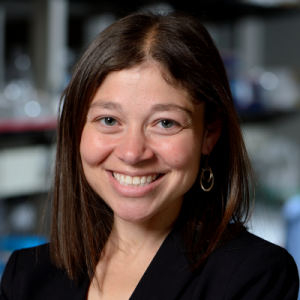
The repertoire of naturally occurring proteins is limited and many molecules induce multiple conflicting effects. Protein engineering affords researchers the unprecedented capacity to create new molecules with novel and therapeutically useful activities. Researchers have traditionally taken an unbiased approach to protein engineering, but as our knowledge of protein structure-function relationships advances, we have the exciting opportunity to apply molecular principles to guide engineering. Leveraging cutting-edge tools and exclusive expertise in structural biology and molecular design, the Spangler Lab implements a unique structure-based engineering approach to elucidate the determinants of protein activity and inform drug development. Building on molecular insights, our group aims to redesign existing proteins and engineer new proteins to serve as targeted therapeutics to treat immune diseases such as cancer, infectious diseases, and autoimmune disorders.
The Summer Seminar Series is co-sponsored by INBT and the Physical Sciences-Oncology Center.
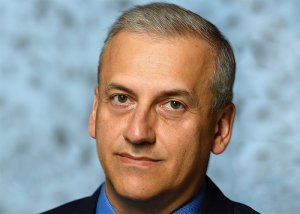
Zeolites are microporous framework silicates that are used widely in the chemical industry as heterogeneous acid catalysts, efficient ion exchangers, selective adsorbents for gas separations and as perm-selective dehydration membranes. They are also useful in other applications like water softening, as desiccants, and for adsorptive/catalytic treatment of automotive emissions. Zeolites have a wide range of compositions, and Dr. Tsapatsis’ will focus his talk on pure silica zeolites (zeosils) and high silica zeolites, i.e., zeolites with large ratio of silicon to substituents like Al, B, Ge, Sn, Ti that isomorphously replace silicon in the tetrahedral sites of the zeolite framework.
Michael Tsapatsis’ research group and collaborators have devoted more than two decades to study zeolite nucleation and crystal growth in efforts to create (i) nanometer-thin, oriented, and pinhole-free separation membranes, and (ii) hierarchical porous adsorbents and catalysts.
The Summer Seminar Series is co-sponsored by INBT and the Physical Sciences-Oncology Center
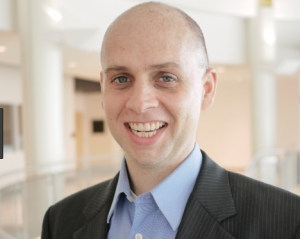
Jewell’s research combines immunology and biomaterials to understand the interactions between synthetic materials and immune tissues, and to design more selective therapeutic vaccines for cancer and autoimmunity.
Jewell will discuss new degradable polymer depots that could improve the selectivity of therapies for autoimmune diseases such as multiple sclerosis and diabetes by locally reprogramming the function of lymph nodes – tissues that coordinate immune function. Jewell will also discuss self-assemble immune signals into modular nanostructures.
The Summer Seminar Series is co-sponsored by INBT and the Physical Sciences-Oncology Center.

Traveling the Long Road to Clinical Translation of Tissue Engineered Bone Grafts
Treating large craniofacial bone loss due to congenital defects, trauma, or cancer resection remains a huge clinical challenge. Approximately 200,000 fractures require bone transplantation annually in the US at the cost of $2B. Tissue engineering, where the patient’s own cells are combined with porous scaffolds to guide their development into new bone tissue, provides a viable means of obtaining ‘autologous’ bone grafts for the treatment of large bone defects. Successfully applying tissue-engineered grafts, however, requires overcoming key scientific, regulatory, and practical hurdles. To address these, Warren Grayson’s lab has focused on the development of a point-of-care stem cell-biomaterial based strategy for treating massive craniomaxillofacial bone loss.
In his talk, Warren Grayson will outline novel technologies and strategies they are developing to advance the bone tissue engineering field with consideration for the regulatory and practical concerns. He will also describe ongoing studies intended to move us closer to realizing human clinical trials.
Learning Goals:
1. Bone tissue engineering strategies.
2. Differentiation potential of adipose-derived stem/stromal cells.
3. Promise and limitations of 3D-printing strategies.
4. Pre-clinical animal models of bone regeneration.
The Summer Seminar Series is co-sponsored by INBT and the Physical Sciences-Oncology Center.
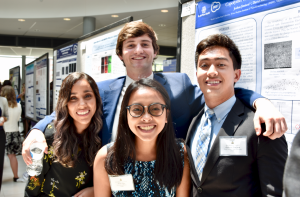
Johns Hopkins Career, Academic, and Research Experiences for Students (CARES) Summer Symposium was launched in 2014 through the collaboration of 10 summer programs. This annual symposium brings together graduate, undergraduate and high school students who have participated in one of the Johns Hopkins CARES summer programs to showcase diverse STEM talent.
We welcome you to come to the event and see all the hard work done by our Nanotechnology for Biology and Bioengineering Research Experience for Undergraduates (REU) program interns. Learn more about our REU program.
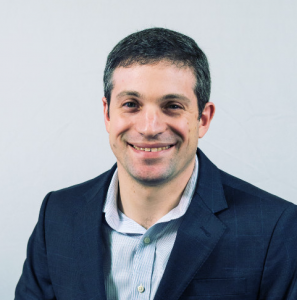
We are pleased to welcome our last guest speaker in our Summer Seminar Series, David Sebba, PhD from BD. David Sebba will be presenting, “Developing a Career in Industry.”
Dave Sebba is an Associate Principal Scientist, R&D Innovation at BD’s Diagnostic Systems business. Dave partners with Business Development, R&D, and business leaders to identify and assess new technologies and business opportunities and set strategic priorities.
Dave joined BD in 2012 where he had roles ranging from Staff Scientist to Senior R&D Manager. As Senior R&D Manager, Dave led teams focused on developing technologies in the microbiology, immunoassay, and clinical chemistry spaces, often working closely with key external collaborators and clinical sites to demonstrate technology performance in the field.
Prior to joining BD, Dave worked as a Program Manager / Senior Scientist at nanoComposix (San Diego, CA), a rapidly growing startup company, where he developed IVD products and OEM materials for the pharmaceutical, electronics, and cosmetics industries. He holds a PhD in materials science from Duke University and a BS in chemical engineering from Johns Hopkins University.
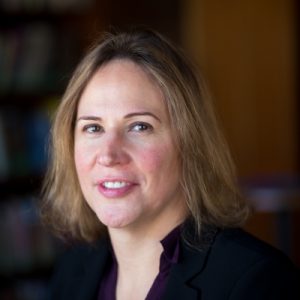
The Johns Hopkins Biomedical Engineering Department is hosting a seminar with INBT’s director, Sharon Gerecht, as guest speaker. Dr. Gerecht will be discussing, “Guiding 3D Vascular Fate and Assembly.”
Abstract: Vascular differentiation and formation (morphogenesis) takes place in an intricate milieu. This unique microenvironment is situated throughout the body in diverse types of healthy tissues, yet it seems to activates/inhibits similar mechanisms of the microvasculature. Two parameters of this microenvironment seem critical for blood vessel growth and stabilization: (i) the extracellular matrix, which provides critical support for vascular cell adhesion, proliferation, migration, and morphogenesis, and (ii) low oxygen concentrations (hypoxia), which is a critical factor promoting vascularization during embryonic development and tumor growth. In this talk I will present our recent efforts to understand how these physicochemical cues and downstream signaling pathways impact vascular fate and assembly from progenitors and pluripotent stem cells.
Location: Johns Hopkins Homewood campus, Clark Hall 110. Overflow will be in Kavli 316.
Reception to follow, Clark Hall first floor lobby.
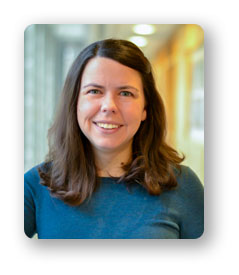
“Ecology Meets Cancer Biology: Keystone Cancer Cells are Actuators of Therapy Resistance and Cancer Lethality.”
Using cancer ecology to solve the problem of metastasis, Amend’s research is focused on understanding the role of the tumor microenvironment in cancer progression, specifically related to lethal metastasis.
Sarah Amend is an Assistant Professor, partnering with Dr. Ken Pienta to study the ecology of cancer. She was a post-doctoral fellow in the lab and received her undergraduate degree from N.C. State University in Biological Sciences and did her Ph.D. thesis work on contributions of the microenvironment to bone resident cancer at Washington University in St. Louis. She is studying the role of the malignant cancer niche in inducing cancer cell biodiversity.
Please join us for the October session of the Student Research Forum. Students interested in presenting can sign up here.
Guest speaker: Kerrie Carden, Director of Student Ventures at JHTV FastForward
To provide more teamwork opportunities and build bonds among graduate students and postdoctoral fellows, INBT implemented the Student Research Forum. The forum is built upon the collaborative core that INBT was founded on and provides opportunities for students to engage with each other on research topics and other professional aspects of research and training.
Each month during the academic year, the group gathers to hear student presentations on research or a business proposal. The presenters receive feedback from their peer audience on how to refine their research project or proposal. One to two guest speakers from a relevant industry organization is also present to provide feedback to the presenters, but to also discuss other topics with students such as research in industry, a career in industry, and how academia and industry work together. Students can use the time to network with peers they do not normally interact with in the INBT labs. At the end of each semester, those presenters compete in a final competition for a cash prize to use toward their research or proposal.
*The Student Research Forum is for INBT graduate students and postdoctoral fellows only.*
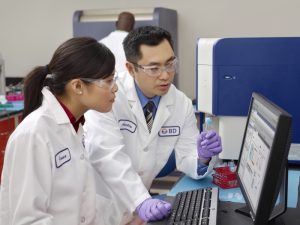
Please join us for our fall information session about our Maters Industry Co-Op program. The program provides students with career training while employed with an industry partner. Students will gain work experience, network, and build technical skills to prepare for a competitive job market. Plus, you will earn a salary and receive college credit during employment.
This program is open to engineering students in Chemical and Biomolecular Engineering, Materials Science and Engineering, and Mechanical Engineering.
Refreshments will be served.
More information can be found on our Maters Co-Op webpage.


